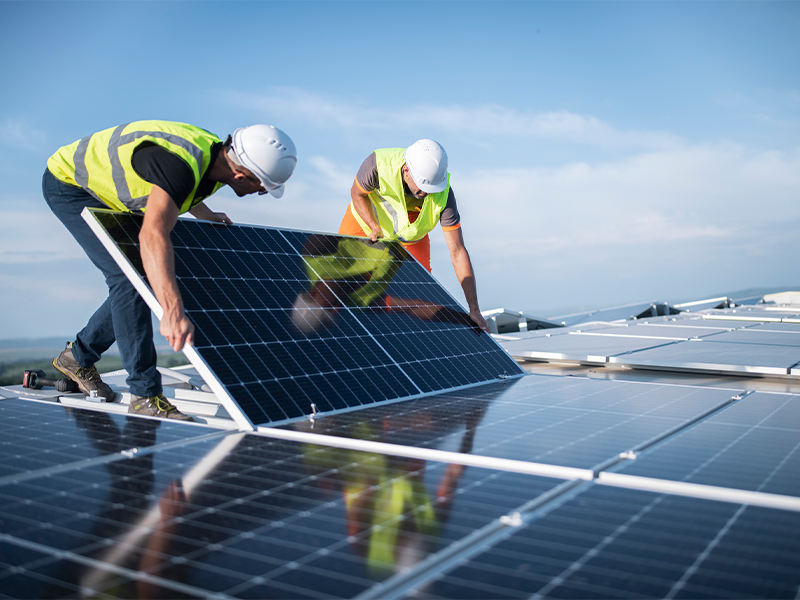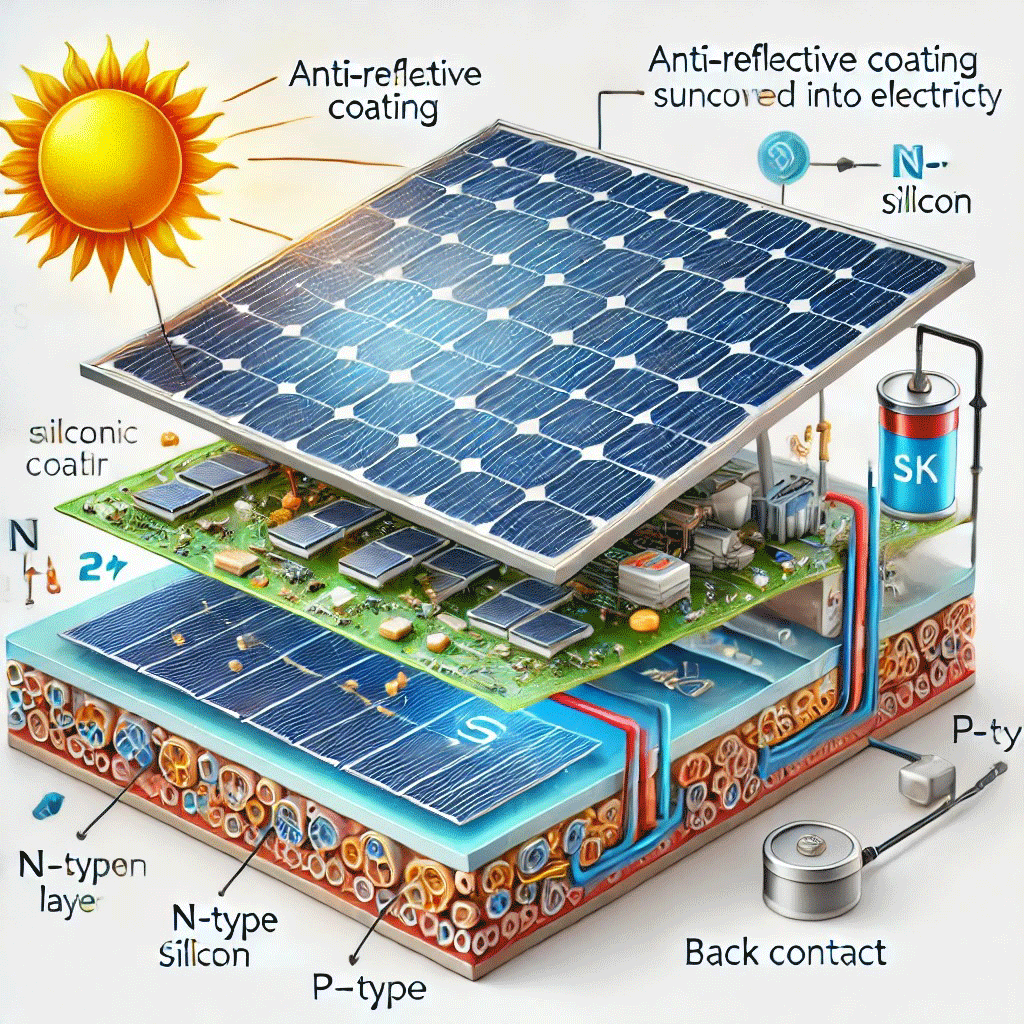Get Trusted Solar Power Solutions from Simply Solar Illinois Today
How Solar Energy Can Help You Save Cash and Reduce Your Carbon Footprint
The combination of solar energy right into your energy portfolio provides an engaging chance for both financial cost savings and ecological stewardship. By utilizing the sunlight's power, home owners can considerably reduce their regular monthly utility expenses while additionally guarding against the unpredictability of future energy expenses. The shift to solar adds to a marked decrease in carbon emissions, aligning personal finance with wider eco-friendly objectives. As different federal government incentives appear, the question occurs: just how can one properly browse the first investments and continuous advantages of solar technology to optimize both financial and ecological gains?
Comprehending Solar Energy Financial Savings
While the change to solar power typically entails an initial financial investment, recognizing solar power financial savings is crucial for homeowners and organizations alike. Solar power systems can substantially decrease electrical power costs by utilizing the sunlight's power, converting right into significant lasting monetary advantages. By creating their own power, individuals decrease reliance on grid power, which is subject to fluctuating rates. These savings can build up gradually, frequently causing a quick return on investment.
Additionally, solar energy systems may get approved for numerous economic rewards, consisting of tax credit histories and refunds, further boosting their cost-effectiveness. The accessibility of net metering allows customers to sell excess energy back to the grid, creating an extra earnings stream. These variables add to the total cost savings connected with solar power.

In addition to route monetary financial savings, solar power uses the added advantage of enhancing residential or commercial property value. Residences outfitted with solar panels are usually much more attractive to buyers, as they promise reduced energy costs - Simply Solar Illinois. Understanding these components is important for anyone considering solar power, as it highlights not just the prospective financial gains, however likewise the wider ecological and financial benefits of adopting renewable resource remedies
Preliminary Costs vs. Long-Term Perks
When assessing solar power, it is essential to weigh the first costs versus the long-term advantages. The in advance investment for photovoltaic panels, setup, and related equipment can be considerable, often varying from $15,000 to $30,000, relying on the system size and home power demands. This initial expense might deter some property owners; nonetheless, it is crucial to consider the possible savings in time.
When set up, solar power systems can considerably lower and even eliminate month-to-month electrical power bills, leading to considerable lasting financial advantages. Researches show that homeowners can conserve anywhere from $10,000 to $30,000 over the life expectancy of their planetary system, commonly 25 years. Furthermore, several states provide motivations, tax debts, and rebates that can balance out preliminary expenses, making solar much more easily accessible.

Decreasing Your Carbon Footprint
Lowering your carbon footprint is a critical consideration in today's ecologically aware society, and embracing solar power is just one of the most effective approaches to accomplish this goal. Solar energy is a tidy, renewable energy that significantly decreases dependence on nonrenewable fuel sources, which are significant factors to greenhouse gas discharges.

Furthermore, the prevalent fostering of solar modern technology urges the development of green jobs and sustains technologies in power storage space and effectiveness. The even more individuals and organizations buy solar power, the better the cumulative reduction in carbon exhausts, promoting a cleaner ambience for future generations.
Government Incentives and Discounts
Embracing solar energy not just benefits the environment however can additionally result in considerable monetary cost savings, particularly with the accessibility of government rewards and rebates. Different government, state, and neighborhood programs are made to encourage home owners and companies to purchase solar power systems, making the shift a lot more inexpensive.
One of one of the most noticeable incentives is the Federal Financial Investment Tax Obligation Credit (ITC), which allows planetary system proprietors to subtract a considerable percentage of the installation costs from their government tax obligations. This incentive has actually been crucial in reducing the upfront expenditures connected with solar his comment is here power systems. Additionally, lots of states use their own tax credit ratings, grants, and refunds that can even more boost savings.
In addition, some regional federal governments supply residential property tax exceptions for solar installations, guaranteeing that homeowners do not deal with enhanced property taxes as a result of their renewable resource financial investments. Energy business might likewise use motivations, consisting of net metering and feed-in tariffs, which allow solar energy individuals to market excess right here power back to the grid.
Choosing the Right Planetary System
Picking the proper planetary system is critical for taking full advantage of energy effectiveness and economic benefits. The decision pivots on numerous elements, including power demands, budget plan, and offered area. Homeowners need to begin by evaluating their electrical power usage to determine the system dimension needed for optimal performance.
Following, take into consideration the various kinds of solar modern technologies offered. Simply Solar Illinois. Solar (PV) panels are one of the most typical, transforming sunshine straight into electrical power, while solar thermal systems concentrate on heating water. Each type has distinctive advantages depending on private demands
Spending plan factors to consider are also vital. First installment expenses can vary considerably, so it is very important to compare quotes from several carriers and discover funding options. Government incentives and discounts can additionally decrease the economic concern, making planetary systems extra available.
Verdict
In summary, solar power presents a feasible solution for accomplishing substantial cost financial savings while concurrently decreasing click here now carbon emissions. The initial financial investment, though substantial, yields considerable long-lasting monetary advantages, with possible savings varying from $10,000 to $30,000 over 25 years. Additionally, the environmental advantages of solar power contribute to lasting techniques crucial for combating climate change. Federal government rewards boost the usefulness of solar modern technology fostering, motivating a shift towards a cleaner, extra financially reliable energy source.